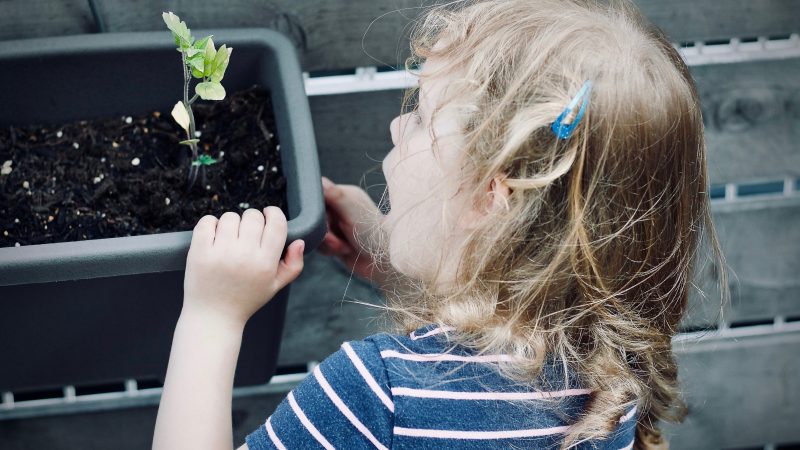
Lighting up passion through flexi-learning – a Q&A with Julia Black
We were really pleased to welcome Julia Black from Explorium to the Parenting Science Gang to answer our questions about the benefits of flexi-learning. Julia’s work focuses on allowing a child to direct their own learning without being removed from traditional schooling.
to the Parenting Science Gang to answer our questions about the benefits of flexi-learning. Julia’s work focuses on allowing a child to direct their own learning without being removed from traditional schooling.
PSG: Thanks Julia for joining us! Can you tell us a little about yourself?
Julia: Hi everyone, I’m excited to have been asked to be here. Who am I? A good question. I’m definitely a changemaker to my core and I believe passionately that parents and educationalists need to come together to redirect where our education system is heading.
I’ve come into education from my experiences as a parent. I found myself hitting a brick wall so I started to problem-solve. First for my own children, then after success with that I realised I could problem-solve for others too and in 2010 I led our PTA to win the Gold Star Reward for changing the life of the school when we trained all 106 children in my children’s primary school to be stars in their very own big top circus.
That is really how I began my career into education – it kind of snowballed. I saw what happened to children when they could take ownership over their learning and I guess as I could see a vision of how things could be, I began to convince others that it could change too.
Ten years on from when I first started flexi-schooling I now have an educational framework called Lights On that has had a huge impact on children’s attitudes to learning and brought about complete transformations from disengaged students to engaged.
So I guess to conclude you could say that I view flexi-schooling as a hidden gem in our education system which has the potential to transform lives, but more importantly shift how we view learning for our children.
PSG: So you’re definitely a do-er, and a bit different from our research-based previous Q&As. You are talking from personal experience rather than research.
Julia: Yes absolutely a do-er! But I’ve also consumed 1000s of hours of research too from project-based learning, to neuroscience, to the 4Cs which I believe are fundamental to replace the 3RS: Creativity, Collaboration, Critical Thinking and Communication.
PSG: Can you tell us briefly what you mean by flexi-learning?
Julia: I believe heavily that the semantics we use around education has an influence over our journey through it. So I prefer to use the term flexi-learning rather than flexi-schooling because I think it shifts the conversation into one of collaboration and about the child rather than about the school giving permission or a parent seeking it.
When we talk about learning, the only possible starting point from my perspective is the learner themselves. So, our children… who should have ownership over their learning?
Our children of course. So if we start to think about flexi-learning then it becomes irrelevant where that learning takes place – in or out of school. More importantly, it’s about what direction that learning is heading.
PSG: You say our children of course. And that totally makes sense to me. But some people wouldn’t see it like that and think you need trained teachers in charge of children’s learning, ‘what if the kids don’t want to learn algebra?’, type things.
What makes you think children being in charge is a good idea?
Julia: Because I’ve spent four years delivering hands on learning to over 600 children and I’ve seen what happens when you give ownership to children. You are right though – not all children want it and that surprised me when I first came across children who want to be told what to do and want to follow instructions.
PSG: I was wondering what your experience of flexischooling has been? I have come across many people on Facebook sites who are considering this as an option but the majority seem to have requests turned down. Have you come across successful real life flexischooling experiences or is it as rare as it seems?
Julia: Yes we have many successful flexi-school experiences that I can share.
I think it is rare for schools to agree to flexischooling requests because I think we are framing the conversation in the wrong way. I think that fundamentally, for flexi-schooling to take off and be that change that I believe it can be, we need to reframe it.
The benefits arise to both the child and the school because flexi-learning becomes a collaboration.
PSG: How we are approaching the conversation in the wrong way ? I am interested in your thoughts on this. How can we emphasise the benefits of flexi schooling for the child and school?
Julia: I think sometimes we as parents, can feel shut out from the educational adventure that our children begin when they start school. I definitely felt this. I think teachers would welcome it because they want their students to be switched on and engaged and they also know their limitations within their classrooms.
PSG: I have been at home with my daughter for nearly 5 years and although I have been delighted so far with many aspects of her school I am starting to feel that I am expected to hand her over. Yet of course, I know her best – her passions , her wishes, her ways of engaging and her emotional and social needs. She is totally In charge of her learning at home and I see how rich and valuable this is.
Julia: Absolutely – and you still want to be part of that conversation, part of that adventure and part of that collaborative experience – rightly so. And I think teachers can welcome that. If we start expecting them to do it all…we are in a kind of self-fulfilling prophecy.
PSG: This is interesting – turning the tables a bit on the argument that flexi learning makes MORE work for schools . Would you say that flexi learning/ schooling does have disadvantages for schools? Many quoted barriers are schools feeling concerned about children socialising ; children missing out on important topics; teachers having to spend extra time liaising with home ; floodgates being opened etc etc Is this anxiety from schools or are they real obstacles that need to be addressed ?
Julia: I personally think they are perceived obstacles through lack of experience. Floodgates never opened in any of the schools we’ve worked with! No more work for the school – they might start off thinking it will be but when they realise the positive benefits to the child they soon relax about the work that is being missed. It doesn’t take much time to find out what the topic is and most teachers would expect to communicate that to a parent whether they were flexi-schooling or not. So yes – I would say less work for the schools because of the re-engagement.
PSG: So am I right in thinking that you use the phrase flexi-learning to encompass being at school and taking part in the standard classroom activities PLUS doing something different. Or do you use it to describe the doing something different bit?
Julia: Yes, for me flexi-learning involves learning both in and out of school. It is having the flexibility to lead your own learning and choosing the direction of travel.
I’m seeing the benefits at the moment with my own daughter who is bringing changes within her school environment to the excitement of the Head Teacher because she is identifying problems and coming up with a solution that will work for her. She is proving that given the responsibility and independence to learn through what makes her excited, through her strengths and to follow her passions then she can do amazing things.
Julia: It might be a good time to introduce Ollie at this stage https://issuu.com/explorium/docs/lights_on
If you go to page 26 in this ezine, you’ll see the stories of 5 young people for whom flexi-learning – with just 2 hours a week out of school timetable – tapped into something that a full-time school timetable could not have provided.
In Ollie’s case, he didn’t understand what was going on for him for 7 years, because he just thought something was wrong with him. We found out within about 5 minutes with us that he was a visual learner and then we started to help him create, to start to believe in himself. Then we began to help him change his mindset. He always gave up when things became a bit hard – he’d say he was bored. I asked him one day if he stopped because it was boring or because it became hard. He admitted the latter and so then we helped him develop a stronger learning mindset. Then it was all about giving him the opportunity to immerse himself in the way he learned best – visually – as well as dive into his interest (and latent talent) for photography.
PSG: We want to do research into flexischooling, and we are interested in what effect it has on the kids. From your work, what attitudes or behaviours would you expect to be different between flexi-learning kids and kids who are in full time school?
Julia: There are massive differences. It is really exciting to see. A child who has been able to flexi-learn, even just for 2 hours a week, can suddenly have a complete turn-around in their attitude to learning and also their achievement academically.
The crux of course is what they do with that time, and in my view, whether they start to tap into their passions. If they have a learning mindset in place, then ultimately what flexi-learning provides is time.
Those are the key ingredients I believe need to be part of any flexi-school agreement – giving our children time to tap into their passions, get the right mindset in place (one of growth rather than fixed).
PSG: Can you tell me more about how their attitude to learning changes?
Julia: Our children spend so much of their time in school in structured learning time so what this can do, particularly as they move up through the school, is begin to erode who they are or who they think they are so they become very passive learners. Even those that may appear to be succeeding can be very passive and disengaged. A strong flexi-learning plan can give them back time to be ‘them’ and also to help them become more active.
We’ve seen students in Year 9-11 who were extremely disengaged be transformed in the space of a few weeks with just couple of hours a week out of the classroom. What is important is that the teachers recognised it back in the classroom.
So to bring the teachers back into this – if we reframe this about what is best for our children, rather than what we want as parents or what the teachers want, then we can frame the conversation around empowering them to be active learners. That in my opinion is key and we have seen it time and time again. Teachers respond to that.
I started off in the skittle alley of a pub with 23 home educated children. The we started to get some parents ask us to support flexi-school plans. The Head Teachers then wanted to see what we were doing with them, and before I knew it we were working with 15 schools and being invited to be on school site of Ansford Academy which is where I learned the true power of flexi-learning.
How could it be that a child could walk through one door on the school site and be a passive, disengaged learner and then walk through our door and be totally inspiring, creative, with so much potential?
It was because TIME is taken away from them. Their time is structured. Their passion is not tapped into. But once you unlock their learning potential and they get a taste of what they can truly do, that changes everything.
PSG: Would you say then that teachers’ attitudes to flexilearning are changed by experiencing it too?
Julia: Absolutely. When we started to have children come to us for just one day a week or even sometimes half a day the teachers saw the difference back in the classroom.
So we have evidence for what flexi-learning can do for our children – and also for those who start off perhaps not wanting to lead their learning but once they tap into their passions they are unstoppable and they surprise themselves.
PSG: When you say evidence, how have you evidenced that? Is this observation and anecdotes, or are you quantifying it in some way?
Julia: Have a look at the photo below because your question is spot on with where I was heading.
 We believe in making learning tangible, and strangely, whenever we have given children space to learn in a way that suits them they do tend to create. They like to be hands on and produce content that we or they can then respond to.
We believe in making learning tangible, and strangely, whenever we have given children space to learn in a way that suits them they do tend to create. They like to be hands on and produce content that we or they can then respond to.
The drafts of the impossible triangle above were done by Oscar – age 6. At school he was underachieving and his mother thought this was out of synch with her view.
PSG: Wow, 6!
Julia: Yes WOW – 6! I know. This is why his mum wanted him to flexi-school – here are some of her words:
“Oscar has always been a very bright, competent and curious child, and we expected him to flourish at school – he’s a typical ‘sponge’. But in his first two years he really struggled to engage with it all. It was very obvious to us that the learning environment offered by the school was not one that Oscar particularly wanted to be in, it was not engaging him or giving him the opportunity to explore the ideas, questions and thoughts in a way that satisfied his interests and curiosities at that time. He became very unhappy and we had many tears before school. This was not the start that we wanted for Oscar’s educational journey.”
We wanted Oscar to fall back in love with learning and to experience child-led education. For him to realise that it was good to have all of the ideas that he had, and to think in a way that other people didn’t. That learning wasn’t about passing tests and making your teachers happy, but about being creative, making mistakes and taking risks, discovering and developing new skills and most importantly having fun.
There was definitely an element of tact required in approaching the school. We didn’t want to offend anyone, or make the school feel like they were doing anything wrong – in fact our problem was not really with the school at all but with the state school system. Our first step was to meet with the Headteacher, having already sent her details about Explorium and what they could offer. The meeting was very positive. We made it very personal to Oscar and his needs as an individual. We were advised to submit a formal request to the Governor’s Attendance Committee as it was ultimately up to them as to whether or not a child could regularly be away from the classroom. We submitted a lengthy document to them, which they fully supported. However, there was a condition that Oscar had to attend morning registration (so that officially he was only missing the afternoon session). We were also required to repeat this formal request every half-term along with a progress report to the Governors, Head Teacher and Class Teacher.
Oscar’s mother said:
“It helped him to realise that he could achieve amazing things if he put his mind to it, that in his own words, age 6, ‘nothing is impossible. It gave Oscar the opportunity to develop so many important skills that he will carry with him throughout his life – draft/critique, problem solving, risk taking, appreciation of others, creative thinking just to name a few. He has been able to take all of these back into the school classroom, and it has without doubt helped him re-engage with school in his own way.”
Here’s Oscar’s mum’s advice for proposing flexi-schooling to your child’s school:
“To work together with the school so that they feel part of the solution and not the problem. Most teachers are very aware that they can’t possibly deliver a child-led education to a class of 30+ and we felt there was a genuine understanding from the school that Oscar would really benefit from being in a child-focused educational setting.”
With Ollie it resulted him in having the best school report ever. Since Year 2-8 he had intervention through SEN provision. In Year 9 he stopped that and came to us. The Head Teacher has said the transformation is incredible. Here is Sandra’s, his mum’s testimony- with subtitles so you can watch it with the sound off: https://vimeo.com/231059797
That is when it gets really exciting.
PSG: What do teachers think about this?
Julia: I believe it absolutely matters that teachers see a change back in the classroom, and in every case we’ve been involved in they have. Teachers have been really open to acknowledging it and celebrating it with the parent.
I think it matters that the change is seen in the classroom because we want to empower our children to be active, engaged and excited about learning – whether that is with us, as their parents, or with their teachers.
I am aware that some teachers are more inspiring than others, but that is the key where flexi-learning can become powerful. We need to move away from our children loving learning based on who is the teacher and more because they are hungry to learn and they have the skills to learn.
Not every child is equipped with learning skills, or put it another way, they started off with those skills but they have lost them along the way – maybe due to school, maybe life circumstances. But flexi-learning can help them get them back.
PSG: So what would day 1 of flexi-learning look like?
Julia: If it was happening within our Lights On framework then the first thing would be to do what we call Locate the Switch. What is they really love to do when they can do anything they choose?
This is always really telling – do they know? Or do they not know where to begin?
When our children are young they are fairly well connected to their switch – their passion, the thing that makes them ‘them’. But as they move up through our school system that connection can be lost, and when it is lost the case for flexi-schooling is really strong.
It is also really strong when our children are young – we want to give them time in the school week to learn through their passions and most teachers would recognise that isn’t always possible.
So if they know what their passion is then day 1 of flexi-learning is all about exploring, discovering and creating.
PSG: What do you do if they look at you with a blank face and say “I dunno……”
Julia: When they don’t know we get them exploring and trying new things. We give them some direction to get them started and we work with them to help them reconnect or discover for the first time what they enjoy. We call it a learning carousel.
PSG: Schools often argue that children’s passions can be explored outside of school hours – what are your thoughts on this?
Julia: Indeed they can. But what happens when our children start disengaging within school or are tired because of school, especially when young, is that they don’t have the energy or desire to engage in their passions.
Many parents we’ve worked with have said that they don’t want their child doing after school activities because they need down time – which they do.
So I would say to that school – if they were saying that to me – yes, they can follow their passions after school but that time at home is for them to also be with their family, which when our children are young is really important.
PSG: I agree entirely. I am seeing this already half a term in with my daughter. It’s not that she doesn’t enjoy school, but the “conforming” is exhausting, and it takes the weekend to settle her enough to start engaging in her passions again. Then we start all over.
How can we frame this so that it is not a criticism of the school but simply a fact of our system?
Julia: I started flexi-schooling when my daughter was 4 because she would come out of school angry and frustrated – maybe what you are experiencing with your daughter. It was too much for her. We continued to flex-school through to Year 5 and then she came out for 2 years, but she is now flexi-learning within her school.
At no point have the schools taken offence. It isn’t about what they are doing wrong but what is right for your daughter.
Every parent we have helped get flexi-schooling agreements in place were nervous to have the conversation – but it doesn’t have to be ‘them and us’ when we frame it around what is right at this point in time for the child.
PSG: Thank you, Julia. This is all very useful and helpful. I think that reports from those who have failed to engage schools in flexi learning/schooling has made me feel that schools are inherently against the idea. It is good to hear a more positive stance.
Julia: I think that parents can get frustrated, nervous and then at times, confrontational. Teachers and Heads can get defensive, surprised by the request and can feel unprepared. It might not be an immediate yes and I think schools are right to question why and want to review it, but that doesn’t mean the ultimate answer has to be a no.
We’ve been gathering evidence – qualitative data really – case studies from a 360 perspective; the children’s testimonies, parents testimonies and schools testimonies.
For me the power is all in the individual stories that collectively start to give a bigger picture. That is where I believe research should focus in on – showing the power of collaboration between schools and families. That is what flexi-learning or flexi-schooling facilitates in a truly magical way.
If we can inspire others to see a new path through education then a new conversation can be initiated. And that comes back to me as a changemaker – I believe we can make changes even to the rigid education system if we reframe the conversation and centre it back on the learner. For me, when I say learner I mean the adults in the mix just as much as the children because teachers are learners too and I feel really strongly that we should empower them to be able to learn.
PSG: I have concerns that this only partially addresses the issues surrounding education. I think all children should be learning about growth mindsets and Carol Dweck should be compulsory reading to explain why. I also think it’s important for children to know their particular learning style and people should be aware of Howard Gardner and his work. The issues with schools still remain, with standardised testing, working to a curriculum and homework to name a few. I wonder if and when children go back to full time education the results you see begin to fade or whether there’s a lasting impact. It would be awesome if we could ignite in children a passion for learning but in my experience school seems to have the opposite effect a lot of the time.
Julia: I agree, the issues do still remain with school. Absolutely. Flexi-schooling or flexi-learning can’t make changes within the school in terms of curriculum, assessments and other aspects we may all struggle with, as parents and educationalists.
But what it can do is nurture lasting (and I do believe they can be lasting) changes within our children. That is the big case, in my view, for flexi-learning IF the time is used to ignite that passion for learning, and as you rightly point out, to help children understand their style of learning, to move towards a growth mindset.
Then the impact within the school can start to change because the role for the teacher becomes very different and the perceived constraints for them also begin to lift. Also I think once our children can show what they are capable of doing – such as the example of Oscar and if you read about Ollie – then we as parents in collaboration with teachers can begin to show an alternative way – authentic assessment it is called – for documenting learning.
So whilst flexi-learning on its own can’t change our education system overnight it can, in my opinion if embraced as an opportunity, definitely be part of moving our schools forward. Having said that it is of course all dependent on what happens during the time out of school just as much as what happens at school and that is why flexi-schooling is a collaboration very different to home educating or full-time schooling.
Has this inspired you?
Why not check our Julia’s ezine that describes her work: https://issuu.com/explorium/docs/lights_on and her website: http://explorium.co.uk.
If you are interested in flexischooling, why not come and join the Parenting Science Gang as we devise our own study in flexischooling in Scotland. You can join the Facebook group where we do all our work here: https://www.facebook.com/groups/1808623652732279/
Our other Q&As on flexischooling are also on our website:
- Exploring Flexischooling with Centre for Personalised Learning Trustees Dr Harriet Pattison, Alison Saur and Fiona Bevan.
- What’s the Alternative? with Dr Helen Lees


